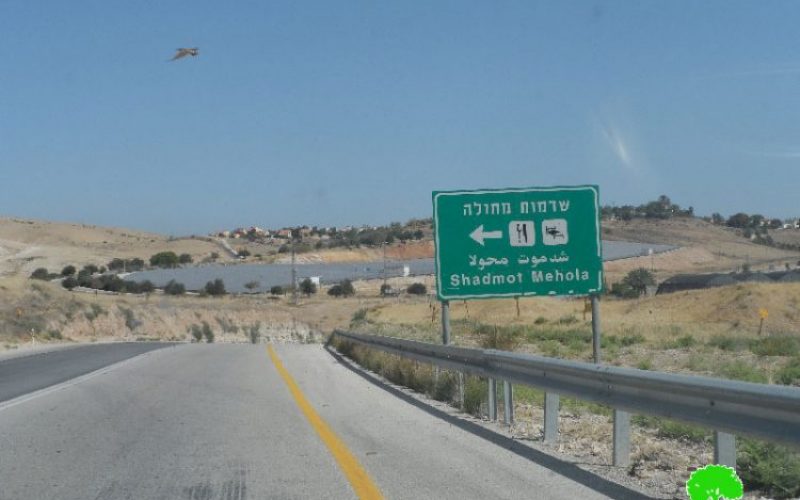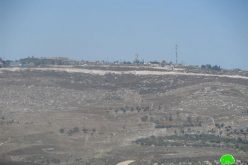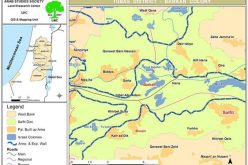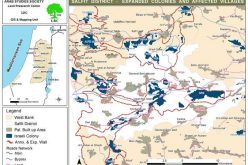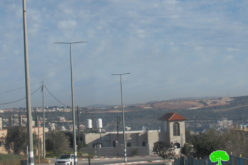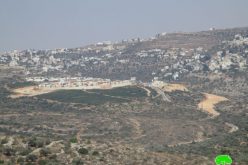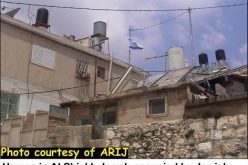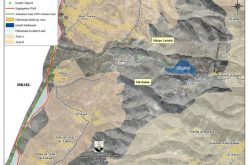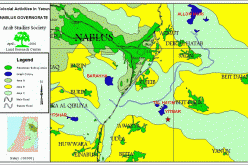- Violation: expanding a colony on Palestinian lands
- Location: northern Palestinian Jordan Valley (Al-Ghoor)- Tubas
- Date: May 12, 2016
- Perpetrators: Colonies Council of AL-Ghoor
- Victims: farmers of the area
Details:
In a new attack against Palestinian lands and people, the machineries of the Israeli occupation continue the ravaging works in the southern parts of Shadmot Mehola colony, which is located in the heart of Al-Ghoor area, adjacent to the Israeli bypass road no.90.
It should be marked that the leveling works mainly aim at expanding the colony and establishing new infrastructure for it. According to the field follow up conducted in the area, more than 45 dunums were leveled and planted with protected crops.
It should be also marked that the Israeli government , over the past couple of years, ratified a expansion plan for a number of colonies located in the heart of the Palestinian Jordan Valley. This step came to attract more Jewish investors in the area and to revive the economy of the nearby colonies namely (Shadmot Mehola, Yafit Avrid Yeriho, and Maskiyyot). Noteworthy, the Israeli occupation attempts to transform the aforementioned colonies into great colonial bases, from which massive land takeover starts.
About Shadmot Mehola:
The colony was established in 1982 as an outpost that progressively evolved into a greater colony inhabited by more than 1500 colonists, the majority of whom are conservatives. The colony was first used as a military zone for the Israeli occupation army by 1980. Later on, the zone gradually became a residential colony.
Land Research Center sees Israel continuous expansion on colonies in the West Bank and Jerusalem at the expense of Palestinians and lands a flagrant violation of Human Rights and all international laws and conventions, which prohibit disposition of public properties in occupied countries.
UN Resolutions
UN Security Council Resolution 242 of 1967: calls for
- the Withdrawal of Israel armed forces from territories occupied in the recent conflict;
- Termination of all claims or states of belligerency and respect for and acknowledgment of the sovereignty, territorial integrity and political independence of every State in the area and their right to live in peace within secure and recognized boundaries free from threats or acts of force."
UN Security Council Resolution 449 of 1979: the Security Council determined:
- "that the policy and practices of Israel in establishing settlements in the Palestinian and other Arab territories occupied since 1967 have no legal validity and constitute a serious obstruction to achieving a comprehensive, just and lasting peace in the Middle East"
UN Security Council Resolution 452 of 1979: states that
- "the policy of Israel in establishing settlements in the occupied Arab territories has no legal validity and constitutes a violation of the Fourth Geneva Convention relative to the Protection of Civilian Persons in Time of War of 12 August 1949" and "calls upon the Government and people of Israel to cease, on an urgent basis, the establishment, construction and planning of settlements in the Arab territories occupied since 1967, including Jerusalem."
UN Security Council Resolution 465 of 1980:
- It expressed concern at Israeli settlement policy in the Arab territories and recalled resolutions 237 (1967), 252 (1968), 267 (1969), 271(1969) and 298 (1971). It further called upon the State and people of Israel to dismantle such settlements. The resolution calls on all states ‘not to provide Israel with any assistance to be used specifically in connection with settlements in the occupied territories’.
Prepared by
The Land Research Center
LRC

